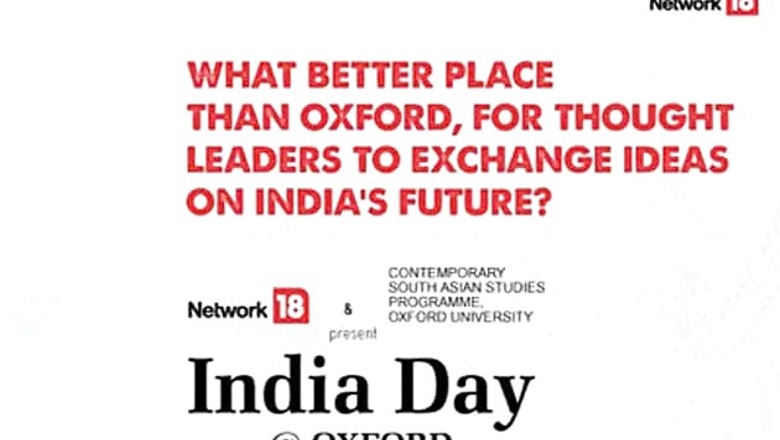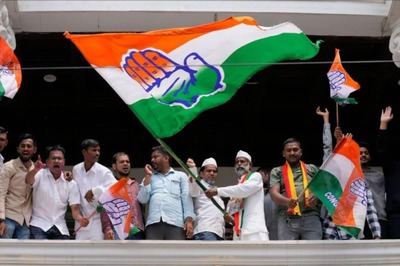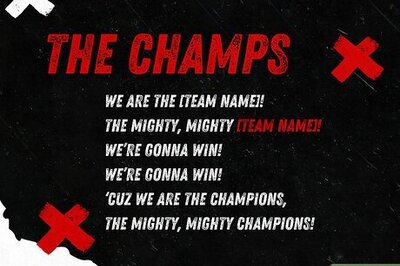
views
About eight years ago, sometime between the dotcom bust and the financial crisis, during his visits to India, CK Prahalad, the management guru, loved to talk about a strange contrast he noticed as he shuttled between east and the west. "When I talk to businessmen in the US and in Europe, they complain to me that their business is growing too slow, at only 1 per cent or not at all," he used to say. "And whenever I come to India, I again listen to complaints. Businessmen here complain to me that their business is growing too slow, at only 25 per cent - 30 per cent." The punch line invariably drew laughter, but it was often reluctant, even diffident. There was laughter because of the recognition that the economic centre of gravity was moving eastwards. It was a bit reluctant because there was a fear that the momentum might not last, and their own worldview didn't match the optimism of the management guru.
Post financial crisis, there's more skepticism. Economy seems to be in bad shape. Newspapers bring stories of scandals and scaling down more often than they bring stories of triumph or, as they once did, triumphalism. Sunrise sectors such as software and telecom have turned cautious, pessimistic and talk about hiring freeze and even lay-offs. Value of rupee, also an indicator of the demand for products and services from India, has crashed to Rs 60 a dollar. Dalmia is back in BCCI, an internet joke goes, Narayana Murthy is back to Infy; Sanjay Dutt is back to jail and GDP growth back to 5 per cent. Welcome to the 90s. It's as if the country is not going forward, but backwards.
Yet, if one were to look backwards, India had faced tougher times, and emerged only stronger. In the years after independence, there were doubts even about the survival of the country. Even those who were excited about it, harboured doubts. In one of his essays, Ramachandra Guha points to a letter by biologist JBS Haldane. It was written ten years after independence in response to an American writer who called him a world citizen. Haldane insisted he be labeled as a citizen of India. He wrote: "I also happen to be proud of being a citizen of India, which is a lot more diverse than Europe, let alone the USA, USSR, or China, and thus a better model for a possible world organisation. It may of course break up, but it is a wonderful experiment."
Today, few would think of Indian nationhood as an experiment. So it will be with the economy. The road might look bumpy, strewn with potholes, but it will take the country to economic superstardom. In fact, it's time to think about the next big question: Can India match its increasing economic progress with its growing political power?
This question will be discussed on 14th June at Oxford, UK, a city with a long academic history and an oversized influence on philosophy, politics and world affairs. Part of that influence comes from academics, its contribution to scholarship and research and part of it from its alumni - many of whom have gone on to play a more direct role in politics, business and administration. (Manmohan Singh, for instance, obtained his doctorate from Oxford). The event is 'India Day at Oxford', the first of a biannual series organised by Network 18. The topic for this year is "India - A political economy for the 21st Century". The big themes that will be discussed include India's political power, its enterprise culture, its changing role in world stage.
The underlying assumption is that while economic power is necessary it doesn't by itself endow a country with political power. In the years following independence, India fantasized about wielding the political power at a global stage based on the moral authority. After all, Mahatma Gandhi had just proven that moral force can be more potent than economic strength or military muscle. That ambition, which got lost in the complexities of governing an emerging nation, has surfaced again with the growing economic power.
There are many sources of political power, but primarily it rests in how well India is able to address what John Keynes (who went to Oxford's traditional rival Cambridge) talks about the political problem of mankind. He said it is to combine three things: economic efficiency, social justice and individual liberty. In the big rivalry that defined the last several decades - the one between USSR and USA - where the answers seemed clear for both sides: For USA it was free market capitalism and liberal democracy; and for USSR it was communism and a pre-utopian dictatorship.
The rivalry of today - between the West and the rest, and among the rest, between India and China, promises to be far more nuanced than that - not just because of the lessons we have learned from the events of the last few decades (After the fall of Soviet Union one of the most discussed book was written by Francis Fukuyama: It was called 'The End of History'), but also because of the rapid progress in technology will also impact the way governments engage with people. (It's the predominant theme of a recent book by Eric Schmidt: The New Digital Age).
These themes will play out at the event by way of discussions with a range of speakers from politics, public policy and academia. BJP's Arun Jaitley, a key opposition leader, will talk on whether parliamentary democracy is facing a crisis. India's minister of external affairs, Salman Khurshid, will look at how India can match its increasing economic progress with political power. Dr. Nandini Gooptu, an Oxford academic, who has studied enterprise culture will talk on how that is playing out in India. Kate Sullivan, another Oxford academic with a long association with India will talk about India's new role in the global stage.
These discussions will push the boundaries of both economics (making the political question an important part of it) and the boundaries of politics (and discuss politics in the context of economy).
The entire event will be telecast live on Network18 channels CNN-IBN, CNBC TV18, CNBC Awaaz and IBN7 and will be streamed live on our site at ibnlive.com/indiaday from 2:00 pm. Tune in.
Disclaimer: IBNLive.com is a part of the Network18 group which is organising the event.



















Comments
0 comment